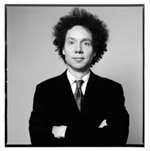 Malcolm Gladwell, author of Blink, tells of a time when he attended a show for an improv comedy group. “They would get up onstage, without any idea whatsoever of what character they would be playing or what plot they would be acting out, take a random suggestion from the audience, and then, without so much as a moment’s consultation, make up a thirty minute play form scratch.”
Malcolm Gladwell, author of Blink, tells of a time when he attended a show for an improv comedy group. “They would get up onstage, without any idea whatsoever of what character they would be playing or what plot they would be acting out, take a random suggestion from the audience, and then, without so much as a moment’s consultation, make up a thirty minute play form scratch.”
Improv seems to be 100% off the cuff but it is not. “…the true is that improve isn’t random and chaotic at all…Every week they get together for a lengthy rehearsal. After each show they gather backstage and critique each other’s performance soberly. Why do they practice so much? Because improve is an art from governed by a series of rules, and they want to make sure that when they’re up on stage, everyone abides by those rules.”
“This is the critical lesson of improv…spontaneity isn’t random.”
Gladwell concludes that improve works only when the hard work is done to create “the conditions for successful spontaneity.”[i]
How does this inform how we do ministry? We all want to be free, but are we willing to put in the practice in order for it to happen? What are the "conditions for successful spontaneity" when it comes to doing ministry together?
[i] Gladwell, Malcolm, “Blink: The power of Thinking Without Thinking,” (Little,Brown; New York: 2005), pp111-117

